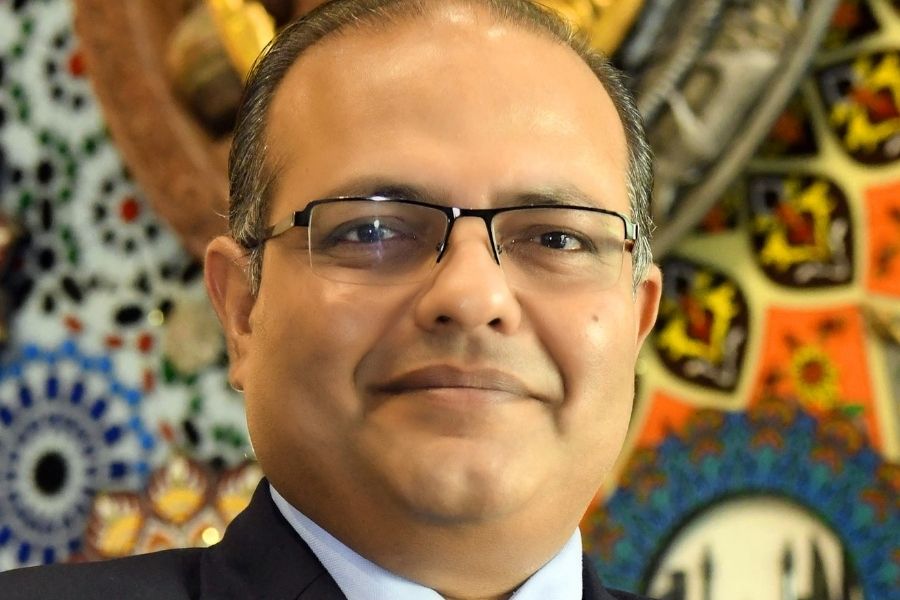India and Bahrain should look for technology partnerships
HE Shri Piyush Srivastava, Ambassador of India to Bahrain, deliberates on post-COVID trade and investment synergies for Indian companies in Bahrain, with a specific emphasis on engineering and F&B sectors.

As the COVID 19 situation is improving significantly and our ability to fight the pandemic is increasing, the focus across the globe is gradually shifting towards economic recovery and revival now.
The deep-rooted historic ties and economic relations between India and Bahrain provide an ideal platform for robust bilateral trade and investment. Our bilateral trade has been encouraging, remained stable even during COVID times and has considerably increased in the first eight months of this year. India is among the top 10 trading partners of Bahrain and bilateral investments have also shown encouraging trends.
The engineering sector is the largest of industrial sectors in India and being closely associated with the manufacturing and infrastructure sectors, is of strategic importance to its economy. India has made significant strides towards developing its engineering goods sector and witnessed a remarkable growth over the last few years. Therefore, it offers tremendous opportunities for both exports as well as investment.
India also has a comparative advantage in terms of manufacturing costs, technology and innovation, besides 100% FDI. We have seen significant FDI into this sector in recent years. Similarly, Bahrain has developed downstream industries in aluminium and hydrocarbon sectors and is investing heavily in infrastructure projects, including the metro rail, causeway, housing and roads & highways. Besides this, there is also an ambitious renewable energy plan.
When I look at the economic development in both our countries, I feel that the true potential of our bilateral trade and investment, particularly in this sector, is not yet fully realized. Out of total engineering goods exports of around US$ 75 billion from India in 2020, our exports to Bahrain have been in the range of US$ 150-300 million.
Similarly, food exports, both agro-based and otherwise, have been a major part of India’s exports to Bahrain. Trade figures for 2020 show that out of the 10 top products being exported to Bahrain, four belong to food category. India is a major supplier of rice, meat sugar, spices and fruits and vegetables to Bahrain, and indeed, to the whole GCC region.
However, we also need to look at this sector from a new perspective. In the post-COVID scenario, food security has come to center-stage in the Bahrain government’s economic policies. It is one of the focus sectors as per the Economic Vision 2030 of the Kingdom of Bahrain. Like other GCC countries, Bahrain has also launched innovative agricultural programs. However, large scale agriculture is proving to be cost prohibitive. We need to also look at institutional and technological partnerships, in addition to trade in this critical sector.
In response to food security challenges faced by Gulf countries, India is presently working on a farm-to-port project. This will be similar to SEZs but in the style of corporatized farms, where crops would be grown, keeping a specific GCC market in mind with dedicated logistics infrastructure all the way to the port.
Food habits around the world are witnessing significant changes in two aspects – the ratio of packaged, ready-made food in everyone’s daily intake is increasing day-by-day and people are becoming very mindful of their health. So there is a pressing need to focus on the products such as organic food, processed cereals, protein bars, healthy beverages, dairy projects, etc. This is an area where we can look for collaboration as well as trade.
India and Bahrain also have huge scope in renewable energy and health care. They have operationalized MoUs in both sectors, which presents a lot of scope and could unlock new opportunities. For renewable energy, we recently had a virtual meeting between the two government ministries. There is an interest on both sides to facilitate private sectors for collaboration. Indian companies with the requisite expertise can explore these sectors, given the potential and huge government focus, particularly on solar energy. India, with an installed solar capacity of around 40.1 GW (MNRE), and is ranked 5th in deployment of solar energy, making it a key potential partner. Similarly, on healthcare, we are planning to have a G2G meeting and take forward the process of collaboration.
Logistics is another important sector for our collaboration. In my recent discussions with the Economic Development Board of Bahrain, multimodal logistics was discussed as a priority sector, where Bahrain wants to collaborate. India, which laid the foundation stone for its first multi-modal logistics park last year in Jogighopa, Assam, has launched an initiative to develop such parks to address the issues of unfavourable modal mix, inefficient fleet mix and under-developed material handling infrastructure impacting logistics costs and efficiencies. Thirty five such parks are being developed in P-P-P mode, and Indian industry can definitely leverage its expertise in this area to develop similar solutions for Bahrain.
There are thus opportunities for intensifying bilateral trade and investment particularly in the above areas. I am hopeful that stakeholders will proactively work on building robust platforms for the private sector on both sides to collaborate and forge new partnerships.
The author is currently Ambassador of India to Bahrain. Views expressed are personal.













Leave a comment